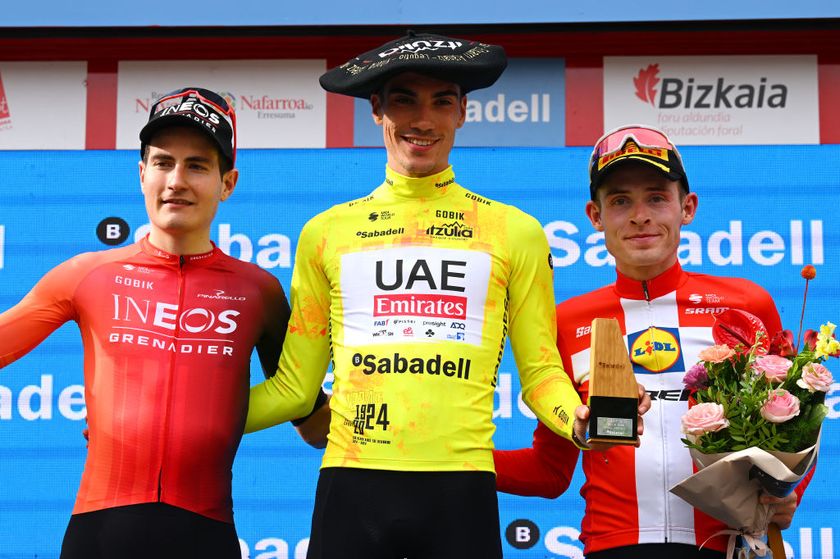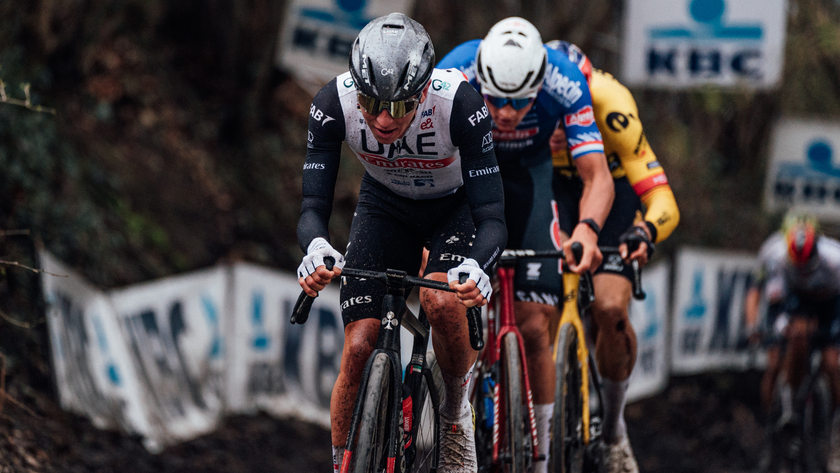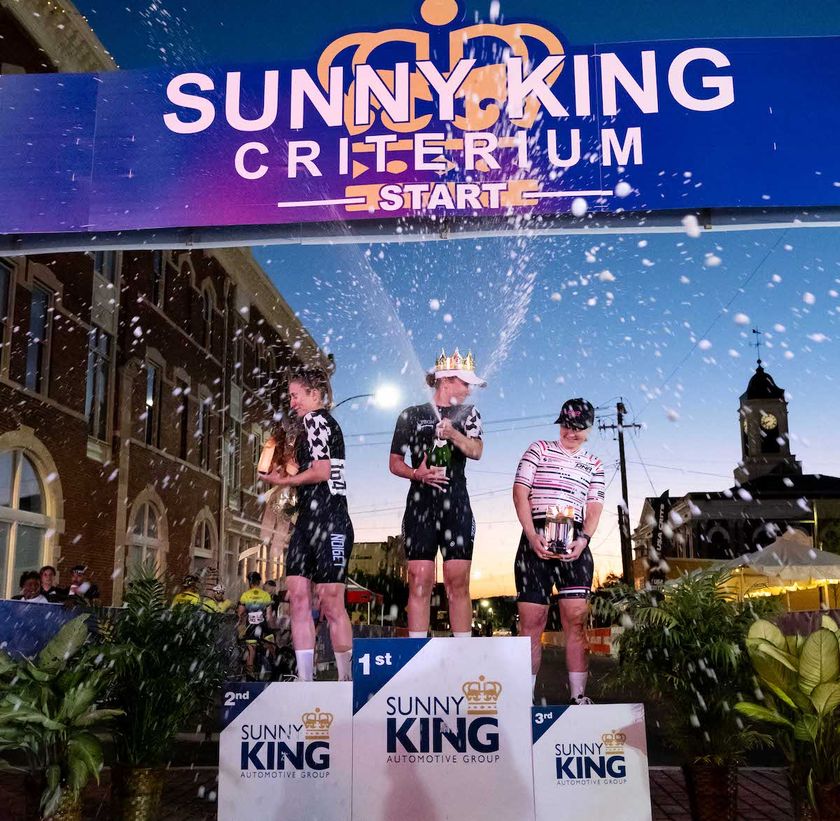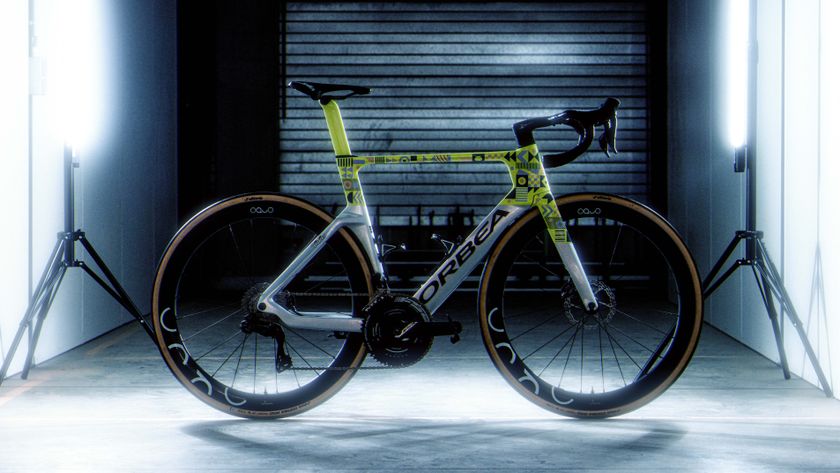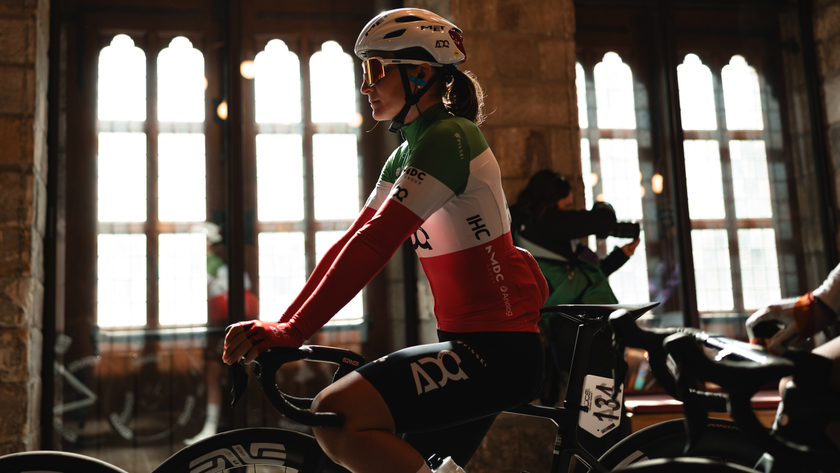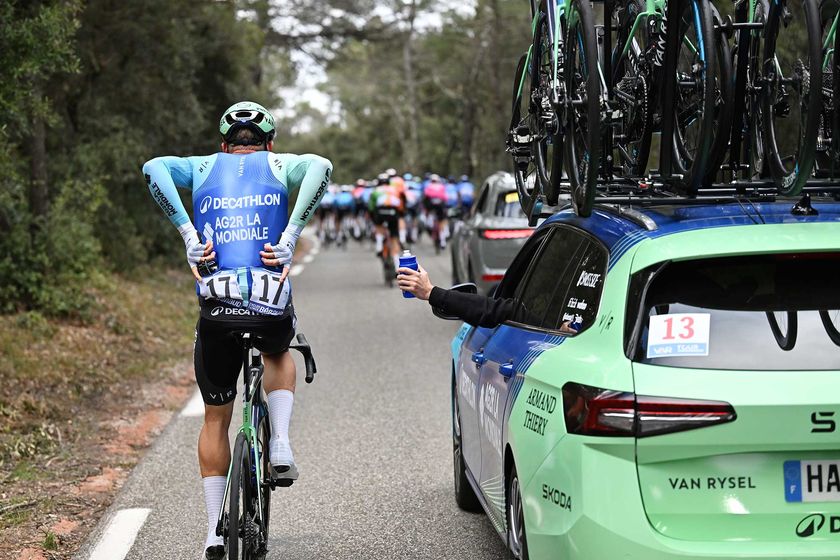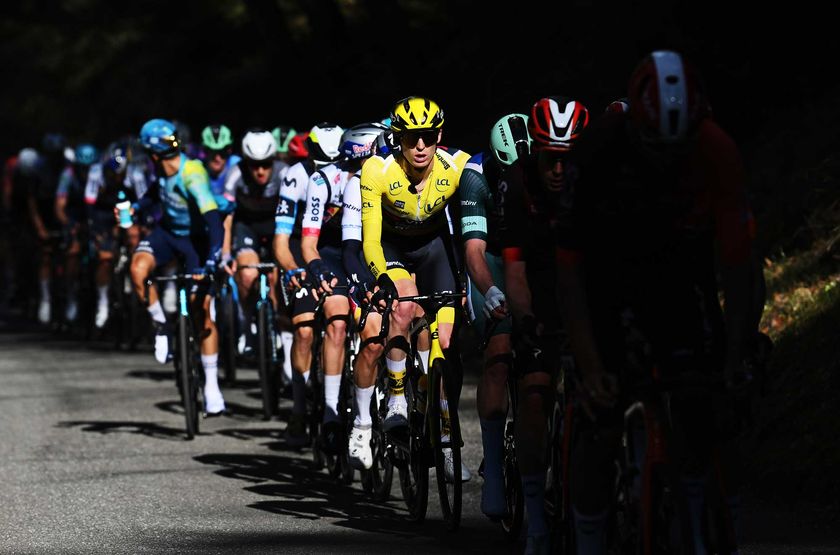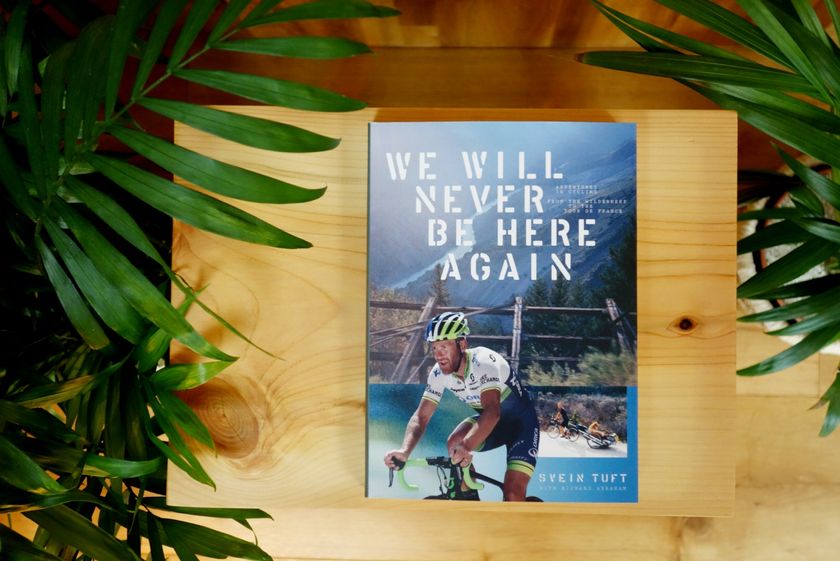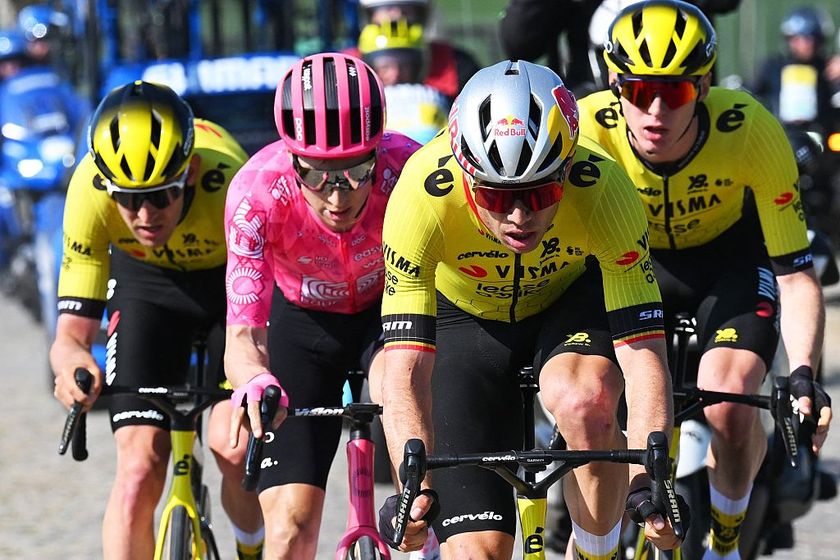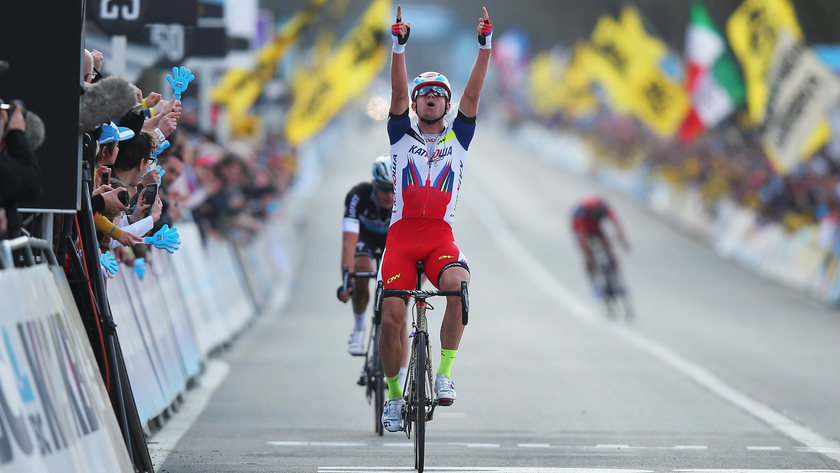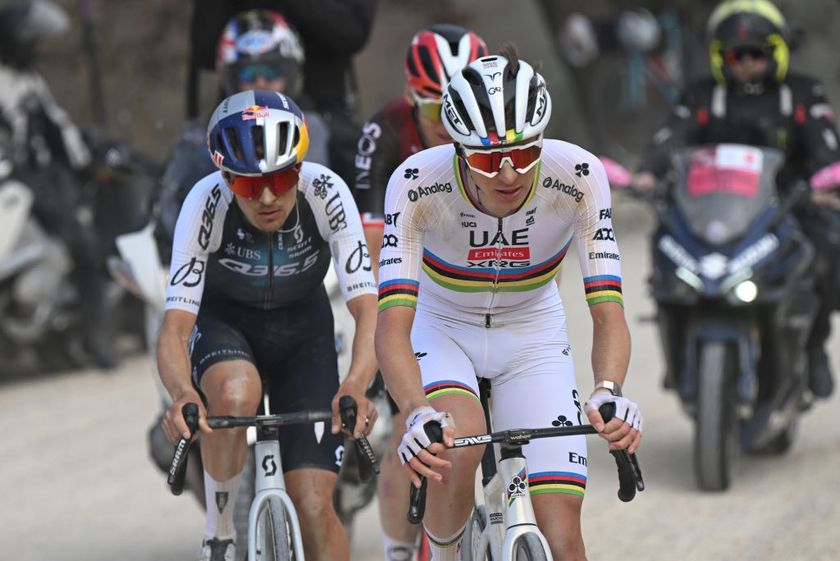Fitness questions and answers for December 10, 2008
Got a question about fitness, training, recovery from injury or a related subject? Drop us a line at...
Form & Fitness Q & A
Got a question about fitness, training, recovery from injury or a related subject? Drop us a line at fitness@cyclingnews.com. Please include as much information about yourself as possible, including your age, sex, and type of racing or riding. Due to the volume of questions we receive, we regret that we are unable to answer them all.
Carrie Cheadle, MA (www.carriecheadle.com) is a Sports Psychology consultant who has dedicated her career to helping athletes of all ages and abilities perform to their potential. Carrie specialises in working with cyclists, in disciplines ranging from track racing to mountain biking. She holds a bachelors degree in Psychology from Sonoma State University as well as a masters degree in Sport Psychology from John F. Kennedy University.
Jon Heidemann (www.peaktopeaktraining.com) is a USAC Elite Certified cycling coach with a BA in Health Sciences from the University of Wyoming. The 2001 Masters National Road Champion has competed at the Elite level nationally and internationally for over 14 years. As co-owner of Peak to Peak Training Systems, Jon has helped athletes of all ages earn over 84 podium medals at National & World Championship events during the past 8 years.
Dave Palese (www.davepalese.com) is a USA Cycling licensed coach and masters' class road racer with 16 years' race experience. He coaches racers and riders of all abilities from his home in southern Maine, USA, where he lives with his wife Sheryl, daughter Molly, and two cats, Miranda and Mu-Mu.
Kelby Bethards, MD received a Bachelor of Science in Electrical Engineering from Iowa State University (1994) before obtaining an M.D. from the University of Iowa College of Medicine in 2000. Has been a racing cyclist 'on and off' for 20 years, and when time allows, he races Cat 3 and 35+. He is a team physician for two local Ft Collins, CO, teams, and currently works Family Practice in multiple settings: rural, urgent care, inpatient and the like.
Fiona Lockhart (www.trainright.com) is a USA Cycling Expert Coach, and holds certifications from USA Weightlifting (Sports Performance Coach), the National Strength and Conditioning Association (Certified Strength and Conditioning Coach), and the National Academy for Sports Nutrition (Primary Sports Nutritionist). She is the Sports Science Editor for Carmichael Training Systems, and has been working in the strength and conditioning and endurance sports fields for over 10 years; she's also a competitive mountain biker.
Eddie Monnier (www.velo-fit.com) is a USA Cycling certified Elite Coach and a Category II racer. He holds undergraduate degrees in anthropology (with departmental honors) and philosophy from Emory University and an MBA from The Wharton School of Business.
Get The Leadout Newsletter
The latest race content, interviews, features, reviews and expert buying guides, direct to your inbox!
Eddie is a proponent of training with power. He coaches cyclists (track, road and mountain bike) of all abilities and with wide ranging goals (with and without power meters). He uses internet tools to coach riders from any geography.
David Fleckenstein, MPT (www.physiopt.com) is a physical therapist practicing in Boise, ID. His clients have included World and U.S. champions, Olympic athletes and numerous professional athletes. He received his B.S. in Biology/Genetics from Penn State and his Master's degree in Physical Therapy from Emory University. He specializes in manual medicine treatment and specific retraining of spine and joint stabilization musculature. He is a former Cat I road racer and Expert mountain biker.
Since 1986 Steve Hogg (www.cyclefitcentre.com) has owned and operated Pedal Pushers, a cycle shop specialising in rider positioning and custom bicycles. In that time he has positioned riders from all cycling disciplines and of all levels of ability with every concievable cycling problem. Clients range from recreational riders and riders with disabilities to World and National champions.
Current riders that Steve has positioned include Davitamon-Lotto's Nick Gates, Discovery's Hayden Roulston, National Road Series champion, Jessica Ridder and National and State Time Trial champion, Peter Milostic.
Pamela Hinton has a bachelor's degree in Molecular Biology and a doctoral degree in Nutritional Sciences, both from the University of Wisconsin-Madison. She did postdoctoral training at Cornell University and is now an assistant professor of Nutritional Sciences at the University of Missouri-Columbia where she studies the effects of iron deficiency on adaptations to endurance training and the consequences of exercise-associated changes in menstrual function on bone health.
Pam was an All-American in track while at the UW. She started cycling competitively in 2003 and is the defending Missouri State Road Champion. Pam writes a nutrition column for Giana Roberge's Team Speed Queen Newsletter.
Dario Fredrick (www.wholeathlete.com) is an exercise physiologist and head coach for Whole Athlete™. He is a former category 1 & semi-pro MTB racer. Dario holds a masters degree in exercise science and a bachelors in sport psychology.
Scott Saifer (www.wenzelcoaching.com) has a Masters Degree in exercise physiology and sports psychology and has personally coached over 300 athletes of all levels in his 10 years of coaching with Wenzel Coaching.
Kendra Wenzel (www.wenzelcoaching.com) is a head coach with Wenzel Coaching with 17 years of racing and coaching experience and is coauthor of the book Bike Racing 101.
Steve Owens (www.coloradopremiertraining.com) is a USA Cycling certified coach, exercise physiologist and owner of Colorado Premier Training. Steve has worked with both the United States Olympic Committee and Guatemalan Olympic Committee as an Exercise Physiologist. He holds a B.S. in Exercise & Sports Science and currently works with multiple national champions, professionals and World Cup level cyclists.
Through his highly customized online training format, Steve and his handpicked team of coaches at Colorado Premier Training work with cyclists and multisport athletes around the world.
Richard Stern (www.cyclecoach.com) is Head Coach of Richard Stern Training, a Level 3 Coach with the Association of British Cycling Coaches, a Sports Scientist, and a writer. He has been professionally coaching cyclists and triathletes since 1998 at all levels from professional to recreational. He is a leading expert in coaching with power output and all power meters. Richard has been a competitive cyclist for 20 years
Andy Bloomer (www.cyclecoach.com) is an Associate Coach and sport scientist with Richard Stern Training. He is a member of the Association of British Cycling Coaches (ABCC) and a member of the British Association of Sport and Exercise Sciences (BASES). In his role as Exercise Physiologist at Staffordshire University Sports Performance Centre, he has conducted physiological testing and offered training and coaching advice to athletes from all sports for the past 4 years. Andy has been a competitive cyclist for many years.
Michael Smartt (www.wholeathlete.com) is an Associate Coach with Whole Athlete™. He holds a Masters degree in exercise physiology, is a USA Cycling Level I (Elite) Coach and is certified by the NSCA (Certified Strength and Conditioning Specialist). Michael has more than 10 years competitive experience, primarily on the road, but also in cross and mountain biking. He is currently focused on coaching road cyclists from Jr. to elite levels, but also advises triathletes and Paralympians. Michael is a strong advocate of training with power and has over 5 years experience with the use and analysis of power meters. Michael also spent the 2007 season as the Team Coach for the Value Act Capital Women's Cycling Team.
Earl Zimmermann (www.wenzelcoaching.com) has over 12 years of racing experience and is a USA Cycling Level II Coach. He brings a wealth of personal competitive experience to his clients. He coaches athletes from beginner to elite in various disciplines including road and track cycling, running and triathlon.
Advice presented in Cyclingnews' fitness pages is provided for educational purposes only and is not intended to be specific advice for individual athletes. If you follow the educational information found on Cyclingnews, you do so at your own risk. You should consult with your physician before beginning any exercise program.
Fat-burning capabilities
Cholesterol level
Knee warmers
Crank arm length
Asymmetrical ride position
Knee warmers and 'cross
Eyesight and bike position
Sit bone
Fat-burning capabilities
I just read the article, 'Danielson looks forward to "good pressure" in 2009' and found the following interesting statement from Danielson:
"I'm also incorporating a few changes regarding my diet and my fat-burning capabilities. Genetically I'm really efficient with sugars and glycogen but I'm not very efficient at burning fats. He also had the efficiency with glycogen and the inefficiency with fat-burning so he has some motivation and interest to research that"
I think this describes my situation well, I can go for 3-4 hour rides with no more than two bottles of water and a gel, and I have no problems whatsoever. I am about 10 kilos overweight (198cm/96kilos) and it seems that no matter how many hours I put in on the bike, I don't loose any weight. It's like the volume of training I do is unrelated to changes in my weight. The only way for me to lose weight is to reduce the calorie intake - increasing the training volume doesn't help.
My diet is fairly ok in my opinion, I try to base it on lean proteins, vegetables and fruit, and I'm trying to stay away from white bread/pasta/rice and sugars in general. But of course I eat some candy at times and have a few glasses of wine. I am 39 years old and I train average 8-9 hours per week over the year.
Can you please explain this concept of 'fat-burning capabilities' he is talking about and describe what kind of diet and training you should use to improve this capability.
Johan Lindblom
Zurich, Switzerland
Scott Saifer replies:
What makes you think you have poor fat burning ability? Your description of being able to ride a long way on water and one gel actually suggests just the opposite. People who are bad at fat burning have to consume a lot of carbs while riding or they bonk. If you can ride a long way without taking on fuel while riding, you must be using fat effectively.
Cholesterol level
I have a question about cholesterol levels, diet and exercise. Background is this: I'm 59, 5'11'', 155 lbs. I ride around 150 miles a week- a lot of it packed in on weekends, plus I run every day for a weekly total of 30-35 miles. I'm a strict vegetarian on a very low fat diet (no added oil apart from what I get in tofu and soy milk, plus 3g of flax oil per day).
I do eat non-fat milk products in the form of yoghurt and take a full suite of vitamin supplements including several grams of Vitamin C daily (I haven't had a cold in 20 years). I recently had a fasting blood test where my HDL was low at 34 against a total cholesterol of 125. My doctor without any discussion apart from the fact he knew I exercised and had a healthy diet, prescribed Pravastatin to change my HDL/LDL levels.
I have several questions regarding what I can do about raising my HDL without resorting to a statin drug with known side affects including muscle pain and soreness (the last thing I need). I've also read that statin drugs don't actually raise HDL so I'm puzzled by the prescription. I was surprised by the bloodwork results since I haven't ever had a bad ratio like this before and my parents had no history of high cholesterol or heart disease. My exercise, diet, and weight have been pretty constant for a number of years.
Since I already have a decent volume of moderate intensity aerobic training, would changing this affect HDL? More miles higher intensity? Would weight loss have any affect on these blood values. I used to marathon at 10 lbs less but I was always courting illness and injury.
Could my diet be too low in healthy oils? Everything I eat is non fat or has very low natural oils. I eat no transfats or saturated fats. I did read that flax oil and Vitamin C supplements can suppress HDL readings so I don't know if either of those might be an issue.
Are there other dietary supplements that I might try rather than taking a statin drug for these cholesterol values?
Since I don't have any risk factors other than the low HDL, I'm interested in pursuing alternative solutions before resorting to drugs like this. Any thoughts would be much appreciated.
Bob Bolin
Boulder, Colorado
Kelby Bethards replies:
You bring up an interesting point. We live in a sedentary society. Thus, your doctor's inclination to give you pravastatin. We tend to see people that unfortunately wouldn't run to catch a pay cheque. That being said, onwards.
Knee warmers
It's time for more cold weather questions! We always hear the conventional wisdom, handed down from the famous coaches... "cover your knees in temperatures below X". The temperature varies depending on which coach, of course. Most say 65F, a few say 70.
Anyway, this is said to prevent knee injuries. Only thing I can see is prevention of frostbite. But that's not what the coaches mean - they're talking about knee soft-tissue injuries, right?
But is there any evidence to support that?
Scott Braden
Richardson TX, USA
Kelby Bethards replies:
I'll probably get lambasted by somebody out there for saying this without being able to site data or literature... but I seem to recall that on a bicycle, with the wind chill, etc, that the knee's natural lubricants (synovial fluid) is not as effective below 65 degrees.
Crank arm length
I was thinking of switching to a 175mm crank from a 172.5mm length. I'm 5'11" with a 34" inseam, I usually average 90-95 cadence and an average of 175-215 watts on my normal club rides (includes slowing down for traffic lights) and I average 30 miles per ride. Would the length work well?
Tom Cook
Eddie Monnier replies:
The peer-reviewed studies of which I'm aware on small differences in crank length and the impact on power output (both maximal and steady state) fail to demonstrate any clear benefit - nor any penalty - in power output. It is unlikely you would even notice a difference.
Asymmetrical ride position
I have a bit of experience in this issue both personally and with other riders. There is a good possibility of this issue can be due to the cranks not actually being centred to the centre line of the saddle.
Or to put it another way, the Q-Factor is not symmetrical to the frame.
I know that sounds ridiculous, but numerous companies selling cranks these days seem to have designed them to look cool and to shift well but chose to sacrifice the crank being symmetrical to the frame in order to create a lower Q-Factor. Another possibility is the problem may be from the bottom bracket shell not being truly centred. This does also occur more often then most people realise.
These two had actually happened to me in the past and on one occurrence caused chronic knee pain which took about a year to completely remedy.
Lastly, the cleats of the shoes may not properly be centred. This does happen from time to time out of sloppy assembly, but I would think that this dad is a bit too neurotic for that oversight. For most people, this will not actually create an issue as they are just not riding the bike long enough to affect their body in a negative manner.
My point is, some times the most obvious things can go unchecked. I noticed you did not make any attempt to ask about the rider's bicycle, or drive train, and if that had been checked before the poor kid was treated as if he had some clear biomechanical issue which there is an very high likelihood he does not.
Ryan Liles
Steve Hogg replies:
I have seen instances such as you mention but never with cranks from the road bike group set manufacturers. Some of the things that I check when fitting people are crank length on both sides ( I see the occasional bike supplied with differing length cranks) and Q factor. With the larger manufacturers, invariably the Q factor is what they state it to be as is the relative distance from the centre line of the frame with left and right cranks. Any differences are within the range of measurement error; i.e., plus or minus a millimetre or so.
Knee warmers and 'cross
I found your post on knee warmers interesting, and I follow the 65 deg F advice when road biking... but when cyclo-cross racing, very few of us seem to follow this advice. In fact, I find myself unbearably hot when the temps are above about 45 deg F and I have anything more than my skin suit! Any thoughts? Should I reconsider and don knee warmers for hard cyclo-cross riding and racing?
Scott Saifer replies:
I suppose if you are generating enough heat internally your knees might be warm enough to be safe even without any special coverage or knee warmers. If you have no knee troubles, I'd suggest continuing to keep your knees covered in training but leave them bare for racing cross, with one exception: On very cold days or coldish foggy days, add a layer of warming rub and petroleum jelly just on the vulnerable front of the knees, a few inches each direction from the knee-cap.
Eyesight and bike position
Could you write a bit about eye sight and bike position problems? I am partially blind in my left eye.
Steve Hogg replies:
I will tell you what my experience is, but would suggest that for a fuller explanation you are better off talking to a behavioural optometrist.
Sit bone
I am a competitive cyclist, and have been riding and racing for several years. I would like to know if you have any advice for me as to why my right side sit bone always gives me discomfort, and added pressure? Any quick fixes?
Mark Hatherley
Steve Hogg replies:
Assuming no major asymmetries, the most common reason the right sit bone 'lights' up is that the riders seat is a touch too high and the rider autonomically favours the right side by pushing down harder on the right hand pedal stroke. Drop your seat 5mm and see if that resolves the problem.
